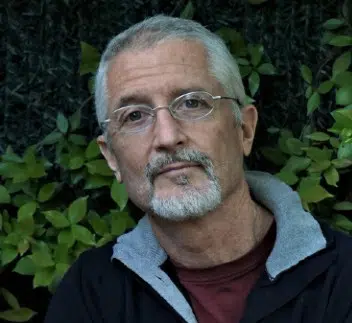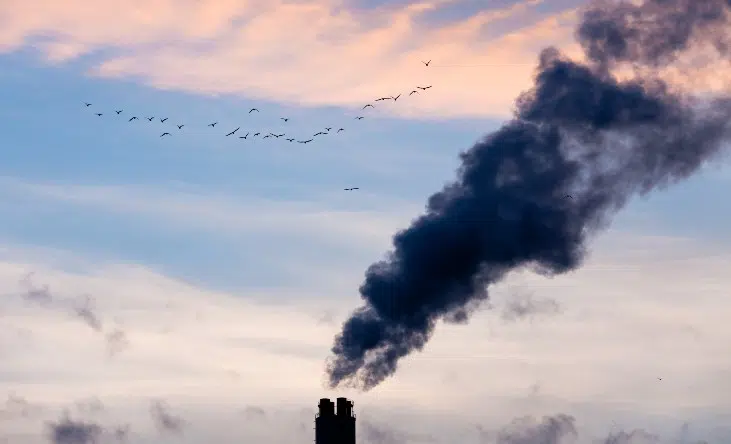SUSTAINABILITY| 22.10.2021
“We settle for living in a sick world, when we could aspire to one that would make us happier”
Fernando Valladares, researcher from the Spanish National Research Council (CSIC) spends a large part of his time studying climate change and explaining how to help reduce its consequences. He says that the most worrying thing is global warming caused by the emission of greenhouse gases, such as CO2, and that we should change our priorities and put the health of our planet first.
 A few months before the pandemic, Fernando Valladares (Mar del Plata, Argentina, 1965), was diagnosed with severe lymphoma. Now, practically recovered and after months of reflection, the research professor at CSIC, where he directs the Ecology and Global Change group at the National Museum of Natural Sciences, says he wishes that citizens were more ambitious. The recent winner of the Rey Jaime I Research Award is convinced that we settle for living in a sick world when we could aspire to a healthy one, a world that would make us much happier. In fact, he believes that happiness levels are declining in society, mental illnesses are on the rise, and this situation, along with the increasing degradation of the environment, should be enough to make us more interested in building a better world. Unfortunately, he believes that we’re not there yet.
A few months before the pandemic, Fernando Valladares (Mar del Plata, Argentina, 1965), was diagnosed with severe lymphoma. Now, practically recovered and after months of reflection, the research professor at CSIC, where he directs the Ecology and Global Change group at the National Museum of Natural Sciences, says he wishes that citizens were more ambitious. The recent winner of the Rey Jaime I Research Award is convinced that we settle for living in a sick world when we could aspire to a healthy one, a world that would make us much happier. In fact, he believes that happiness levels are declining in society, mental illnesses are on the rise, and this situation, along with the increasing degradation of the environment, should be enough to make us more interested in building a better world. Unfortunately, he believes that we’re not there yet.
How would you define climate change in plain language?
It’s a phenomenon caused by two types of processes that affect the climate: natural and human-induced. Among the natural ones are changes in solar activity, in the Earth’s orbital cycles, and volcanoes. However, what worries us most now is climate change of human origin, caused by the emission of gases such as CO2, NO2 and methane, among others, which are mainly released through the burning of fossil fuels. They increase the absorption of solar radiation in the atmosphere, causing an effect reminiscent of a greenhouse. For this reason, these gases, which generate global warming and which we have released into the atmosphere in recent decades, are known as greenhouse gases.
According to a recent UN report, climate change indicators worsened in 2020. What happened?
Actually, the work highlights climate inertia, that is, the result of having subjected the climate system to such a change that, although we temporarily reduced greenhouse gas emissions for a few months during lockdown, global warming continues. It’s hard to imagine what it means to cut greenhouse gas emissions by 50% by 2030. But I think the report goes in one direction, which is to reduce transport and emissions by a ratio equivalent to four times that obtained during lockdown due to COVID-19.

What are the main effects? Which ones should worry us the most?
We are already noticing the effects, with a more extreme and variable climate where hurricanes, severe droughts, and cold snaps become more and more frequent. We are also noticing it with the rise in sea level and with the increased risk of fires. All this has a cascading impact on many ecological and human processes, such as infectious diseases, many of tropical origin, as well as crops, fresh water availability, and respiratory and cardiovascular problems, among others.
Is it too late to protect our planet? Are you optimistic?
It’s never too late, but the longer we take to significantly change our relationship with the planet, the fewer options we’ll have within our reach. The sustainable development goals, which include mitigation of climate change, are long overdue, and that means some scenarios can no longer be achieved. Every year, more opportunities slip away.
What needs to be done to reconcile economic development with environmental protection?
The two can be reconciled if we change our priorities and put the health of our planet first, a concept that integrates our own health, that of all the organisms in the biosphere and that of the ecosystems themselves. All this is closely related, and once we truly understand it and react, development and environmental protection will be one and the same, and there will be no need to reconcile anything.
What do you do to contribute to a cleaner, fairer world? Please give us some examples from your daily life.
I dedicate a large part of my day to understanding climate change, its causes, its effects and the measures to be taken, and another significant part of my day to explaining it as clearly as possible. In my free time, I recycle, I get around by bike, and I try to eat little meat and consume more fruits and vegetables.

